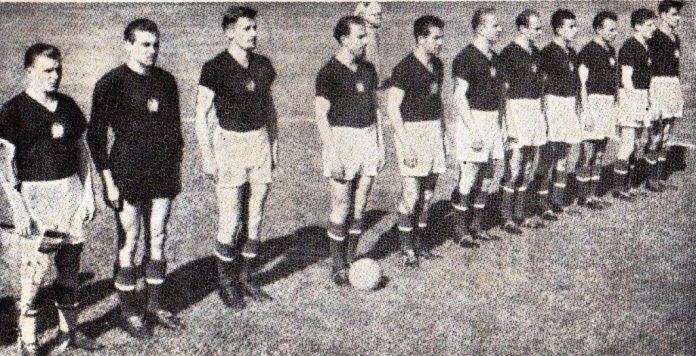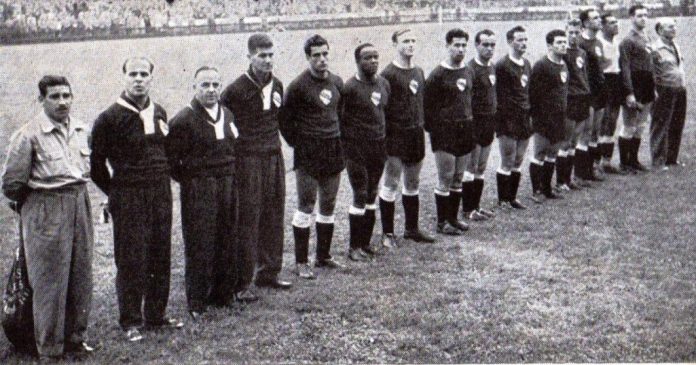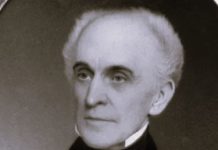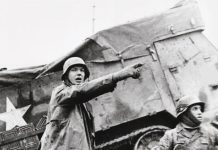FIFA World Cup Semi-Final 1954: Hungary vs. Uruguay
A 1954 World Cup semi-final between the holders of the trophy, Uruguay, and the hottest favorites ever, Hungary, was perhaps likely to be a flop, following the tremendous pre-match excitement. But this was an outstanding example of a much-boosted encounter rising to even greater heights than was ever anticipated.
The result was a 4-2 win for Hungary. Experts all over the world raved about the quality of the football produced by two very great sides in order to fully appreciate the merits of the game. This was perhaps the greatest ever international match.
It is necessary to give some brief indication of the background prior to the game and the feelings with which the Hungarian and Uruguayan teams entered into it. As far as Hungary was concerned, they were still literally licking their wounds following the blood bath with Brazil that had posed as a World Cup quarterfinal.
Moreover, they were extremely apprehensive as to the outcome of a further clash with a South American team rumored to have sworn revenge for their fellow Latins. Uruguay, on the other hand, was feeling rather pleased with themselves for having knocked England out.
The English team that had played well in spite of many criticisms, but heavy rain during and continuing after the morning of the match at the Olympic Stadium, Lausanne, had reduced the playing area to a very wet one and unsuitable to the ideal type of conditions preferred by the Uruguayans. Owing to the ridiculous arrangements for the competition in Switzerland, the draw for the semi-finals made this match obviously, on paper, at least a better match than the final, which might be on similar theoretical lines.
This in fact happened; subsequently, Germany beat Hungary 3–2 in the final, having previously lost to them 8–3 in a preliminary match. Both teams were depleted through injury; Ferenc Puskas was absent for Hungary, and Uruguay was without Varela, Abbadie, and Miguez. The authorities were taking every precaution to prevent trouble, with scores of uniformed police lining the touchline just in case.
The assembly greeted their arrival with derisive whistling. As the two teams came onto the field, the rain was still driving down uncomfortably. But unmistakably, there was a feeling of electric tension. Immediate exchanges saw little advantage for either side, yet almost from the kick-off, there was a gradual impression in the play that if this was good, even better was to follow.
Therefore, the brilliant positional play, first-class passing at top speed, and effortless ball control despite the greasy leather stamped this as the connoisseur’s delight and the reporter’s dream. While the Hungarians relied on retaining possession as long as possible and waiting for the appropriate moment to mount a swift attack as the result of quick, thoughtful interplay, the Uruguayans did not mind risking individual forays.
The Hungarians, however, were clicking more, and they took the lead through Zoltan. Czibor, after about fifteen minutes, was not all one-way traffic. The chief architect of the Uruguayan moves came from Juan Schiaffino, who was playing a very deep-lying game billed as center-forward, with Juan Hohberg laying well up the field.
Time and time again, Schiaffino would set up some fine openings only for the Hungarian defense to quickly cover up the danger a split second before the Uruguay forwards could take full advantage. Hungary seemed just that much quicker in thought and action at that time. They deserved their interval lead.
Shortly after the second half started, they scored again when Hidegkuti, who appeared to cover more ground than anyone else on his side and who was deputizing for Puskas, headed home with a spectacular dive. One might easily have expected the Uruguayans to have had their spirits well and truly dampened by not only the rain but also this further blow to their hopes.
But on the contrary, this proved to be the spur they needed because almost immediately they took control of the game and had the Hungarians’ defense, which had looked very solid and reliable before, reeling and making most unMagyarlike mistakes. After a particularly dazzling piece of work by Schiaffino, Hohberg took a pass down the middle and coolly pushed it past the defense into the net as the Hungary defense closed in.
The majority of the crowd went wild with delight, and the South Americans definitely had their tails up. There was about a quarter of an hour to go, and the Uruguayan team piled on the pressure. A not-dissimilar move found Hohberg again in a position to score. Pandemonium broke out. On the field, Hohberg had collapsed. He was trying to overcome the enthusiastic congratulations of his colleagues. He received attention on the touchline.
Full-time arrived less than five minutes later, amid rather chaotic circumstances. During the break, there was a buzz of intensely interesting conversation around the ground. Soon after play was resumed, Schiaffino hit an upright with a great shot. When the ball left his foot, he was heavily tackled by two defenders and could do little afterward, limping painfully. Uruguay’s last chance was gone.
From two lightning runs down the right wing and subsequent crosses, Kocsis superbly headed home twice to virtually settle matters. But in both cases, Maspoli should have cut out the centers, though this in no way detracts from the greatness of the goals by a great player. Ironically enough, these incidents proved again that however well a team plays, the goalkeeper has only to have a poor game.
Andrade, Uruguay’s colored right-half, was a member of the team that won the trophy in 1950, just as his uncle had been in 1930. Here he heads away to a center meant for Palotas (left). In the closing minutes of normal time, Uruguay threw in everything they had for the winner. Below, Hohberg is seen making a forlorn attempt to turn a teammate’s shot past Grosics.
Source: Jack Rollin reminisces about a second semi-final of the 1954 FIFA World Cup 1954 game that will be long remembered.












